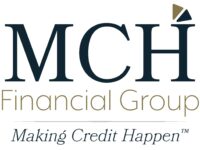The press recently villifed high-interest financing as exploitative and predatory. Yet, savvy entrepreneurs use these tools to prosper. Here’s the truth.
“Merchant cash advance.” “High-interest loans.” “Short-term loans.” “Bridge loans.” For business owners and individuals looking for quick, alternative funding sources, the names and loan types are many. No wonder most confuse them all as one big bad thing.
As always, knowledge is clarity. Let’s review.
Merchant cash advance:
High on interest AND flexibility.
Merchant cash advances are paid back through a percentage of future credit card earnings, and are therefore not considered loans. Based on this technicality, the industry remained largely unregulated during its inception in 1998.
As is the case in many unregulated markets, some lenders took advantage of the lack of ethical standards by implementing extremely high-interest rates, hidden fees, and intrusive collection tactics. Instead of correcting debt and financial failure with fair loans and rates, these lenders led clients over the edge.
Just Google it. Do a bit of research on ‘merchant cash advances,’ and prepare for a barrage of negativity. Basic definitions are disguised as warnings, with financial bloggers ready to unveil “The Ugly Truth” about “The Dangers of Merchant Cash Advances.” One particularly pessimistic title reads, “Death by a Thousand Payments.”
The truth is that, as a form of fast, easy financing, merchant cash advance is actually a legitimate tool: like a hammer, it can build (or destroy) a business. What really matters is how you wield it.
The need for alternative financing.
According to Forbes, despite rising acceptance rates, only 28% of small business applicants get approved for traditional bank loans. Such financing favors established companies, leaving smaller businesses nowhere to turn. Why? Traditional lenders analyze companies in terms of numbers and liabilities, rather than recognizing them as human owners trying to do good work.
Looking to fund a business startup? Exploring a new invention? Fuggedaboutit! “Everyone knows the SBA is a joke,” says David Kolb, lead advisor at MCH Financial, an alternative funding provider. “There’s no real startup financing available, unless you have equipment to collateralize.”
With no safety net, small businesses often fail, creating a less diverse, more monopolized market. To combat that, Kolb and his team focus on creative financing alternatives “based on personal credit and merit.”
Short-term bridge loans:
A sheep in wolves’ clothing
At MCH Financial, merchant cash advance serves two purposes: 1) as part of a larger plan for financial independence, and 2) as a learning opportunity to inform other, safer funding programs.
Unfortunately, bridge loans are often lumped together with merchant cash advances. But they are NOT the same thing. In fact, what unethical lenders perceive as an opportunity to take advantage of a situation, ethical lenders leverage as a chance to help families survive and avoid debt.
Like MCAs, bridge loans offer:
√ Easy application process
√ Lenient approval criteria
√ Zero collateral required
√ 24-48 hour funding
Unlike MCAs, bridge loans offer:
√ No repayment from daily operating revenue
√ Generous grace period before repayment
√ Time and latitude to restructure finances
Used properly, bridge loans help businesses stabilize before the loan is due. They provide funds quickly, enabling payment for projects, deals, rent, payroll, new purchase orders—whatever the business needs to stay afloat.
Then comes the rest of the plan.
Kolb says his goal is to help small business owners transition from cyclical debt to a position of well-managed finances and long-term solvency.
“When the banks say no, we say yes,” he promises. “We helped a customer pay off his heavy credit card debt through a bridge loan, which in turn helped bring his credit score up. We then used a traditional loan to fund his POS system.”
In another example, a client approached Kolb after being rejected by other lenders to pay off his high-interest cards. MCH set him up with a short-term bridge loan, consolidated his debt by providing bank funding on a 7-year payout, and then established a proper line of credit that reduced his APR from 30% to 5-6%!
How MCH helped a soft drink company
This local employer applied for a multi-million-dollar loan for plant construction. While waiting on the bank, they needed money to cover other operating expenses.
Traditional loans were unavailable. So MCH used a bridge to cover R&D, purchase orders, shipping and more.
The company stayed afloat and paid every single employee until the big loan came through.
Bottom line:
Hate the peddler. Not the product.
Today’s top financing companies understand the hidden benefits of short-term loans. Individuals with poor credit history, maxed out cards or no other place to turn can revive and grow their businesses without having to actually repay on a daily basis.
“Our passion is stabilizing businesses and families,” concludes Kolb.
So, next time you see a scary headline to the tune of, “Predatory Lending Machine Crushes Small Business Owner,” think alternatively. Creative capital isn’t kicking businesses to the curb. It actually kickstarts them.
To learn more about the benefits of creative, alternative funding, contact MCH Financial: the newer, smarter way to get credit.












